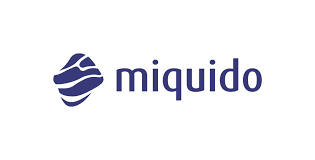
WiredBrief are delighted to bring to you an exciting presentation from the second edition of AI Waves, which looks at Nextbanks AI driven FinTech credit scoring solution
About this event
Exciting developments in Artificial intelligence (AI) are explored by AI Waves during their second instalment: “Forget scorecards and turn your credit scoring into a money-making machine”, which looks at AIs application within FinTech.
This keynote focuses on NextBanks highly sophisticated credit scoring solution which helps solve traditional problems experienced in banking, relating to credit score transparency and maintenance. The use of AI within credit scoring has allowed large amounts of data to be used to determine specific actions / factors that affect credit user scores. These factors are then used to automatically create credit scoring models, which enable more proactive decisions to be taken by both banks and private users alike.
Host
Anna Gawlikowska – AI Waves
Speaker
Krzysztof Kogutkiewicz – CEO at NextBank
Key Takeaways
- The team’s algorithm predicted loan repayments, with a predictive accuracy of 97%.
- Banks and private users can use NextBank’s solution to not just predict the likelihood of loan repayments, but to also highlight the specific factors that cause increases and decreases to credit score.
- The implications of NextBank’s solution mean that loan pre – approvals can be automated by defining a cut off criteria that approves high probability applicants whilst referring riskier ones for manual review.
- Banking teams can also use NextBank’s solution to pro-actively reach out to individuals with higher repayment predictive scores to offer lucrative loan terms before loan applications are made.
Machine learning Models used by NextBank:
- Linear regression
- LightGBM
- XGboost
Result metrics used by NextBank.
- ROC
- F1 Score (Precision and Recall)
The following topics were covered:
- What is Credit scoring 5:38
- How does traditional Credit scoring work? 6:07
- Credit scoring – What are the challenges? : Hard to interpret and reactive 7:16
- What if credit scoring could return probability of return of a given loan they are applying for? Allows automating threshold acceptance. Only allow 80% success loan applications else manually review. 12:12
- Show how a given factor affects a final result (ie credit history, private lending, demographics etc): 13:15
- Can we create a system that can process 1000s of data points? 15:00
- Can we create a pro active system that can recommend good burrowers?: 16:00
- How was the AI system trained and what data sets were used? 18:00
- What models were used? 20:33
- Model goal? 22:15
- Nextbank Credit Scoring solution and results 24:36
- Questions: 29:00
Interested in learning more about AI / Machine learning Services?
Checkout: Miquido

